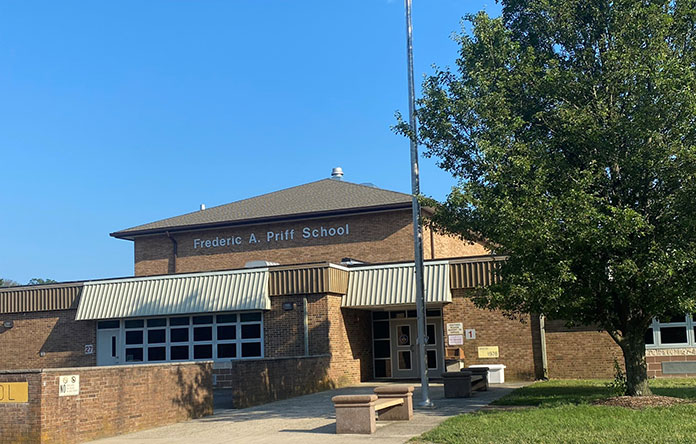
WARETOWN – After suffering the third annual cut in state funding, the Ocean Township School District faces critical budget deficits. And – there are reportedly more losses to come.
State law only allows the school district to raise taxes two percent per year. So, the state cuts funding, and then says that the district can’t fill the budget hole with taxes.
Ocean Township school board members think they have a better solution, which they presented at their most recent meeting.
“We believe the recreational marijuana industry could potentially provide significant extra income for the school district,” said Shawn Denning, Jr., board president. “We believe this would help stop the need to make cuts for students and reduce the additional tax burden to taxpayers.”
Soon after voters decided in favor of recreational marijuana, Ocean Township schools formed a Marijuana Impact Committee. The committee began with just Denning, and the board’s vice president, Sue McDowell, with local residents Joey Fabozzi and Beth Selph-Sitler added when they asked to participate.
The committee’s original charge contained no mention regarding the delegation of tax revenue; concentration focused more on education and the location of cannabis businesses. Committee members reviewed concerns about on-site consumption as well as the availability of edible products.
“We recommend that the policies within the municipal government and the school district are updated regarding the use of marijuana for recreation,” Denning suggested. “We’d like to see employees educated about marijuana usage expectations and set up educational programs to comply with the evolutionary use of marijuana in the community.”
Fabozzi began advocating for marijuana sales in the township even before recreational pot became legal. He took it upon himself to email school staff members to solicit their support for a local shop to save the school and their jobs. Fabozzi also contacted dispensaries to schedule virtual meetings.
For yet another year, cannabis sales remain a part of Fabozzi’s write-in candidacy campaign for township government. He’d also like to see revenue come in from legal prostitution – and affordable housing requirements abandoned.
Fabozzi announced his displeasure when the Ocean Township Committee joined other local communities in banning non-medical use cannabis sales.

Ocean Township officials passed an ordinance last year to allow a medical marijuana dispensary to set up shop in a commercially zoned area. At their May meeting, the township committee outlawed recreational shops – at least for now.
“The Township is waiting for the Cannabis Commission to send down the actual requirements involving recreational marijuana,” explained Deputy Mayor Ben LoParo. “The Township of Ocean is not against having recreational cannabis businesses, which would need to be established according to the laws, licensing, and zoning requirements set by the state.”
Any action regarding the reversal of the ban on recreational shops needs to come from the committee of three that makes up Ocean Township’s government. They also ultimately determine the tax revenue distribution, with no requirements to share with the school board.
Nonetheless, the Ocean Township School Board plans to provide its recommendations to the township committee. As far as the money aspect, school board members hope to take in all of the tax dollars – but will settle for a lesser portion.
“A couple of cannabis businesses we talked to felt that they could generate between $8 million and $10 million in sales,” Denning shared. “That could give us between $160,000 to $200,000 annually.”
Legislation passed by the state government includes a breakdown of tax revenue available to municipalities that agree to recreational cannabis businesses in their communities.
The school board’s estimated revenue applies to the two percent tax revenue available for retail sales. Municipalities can also adopt ordinances imposing transfer tax on the sale of cannabis or cannabis items.
Towns that permit other recreational marijuana businesses can take in additional revenue, including up to two percent each for on-site cannabis cultivation and manufacturer. In addition, up to one percent extra tax could be assessed to cannabis wholesalers.







